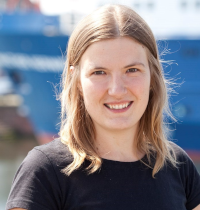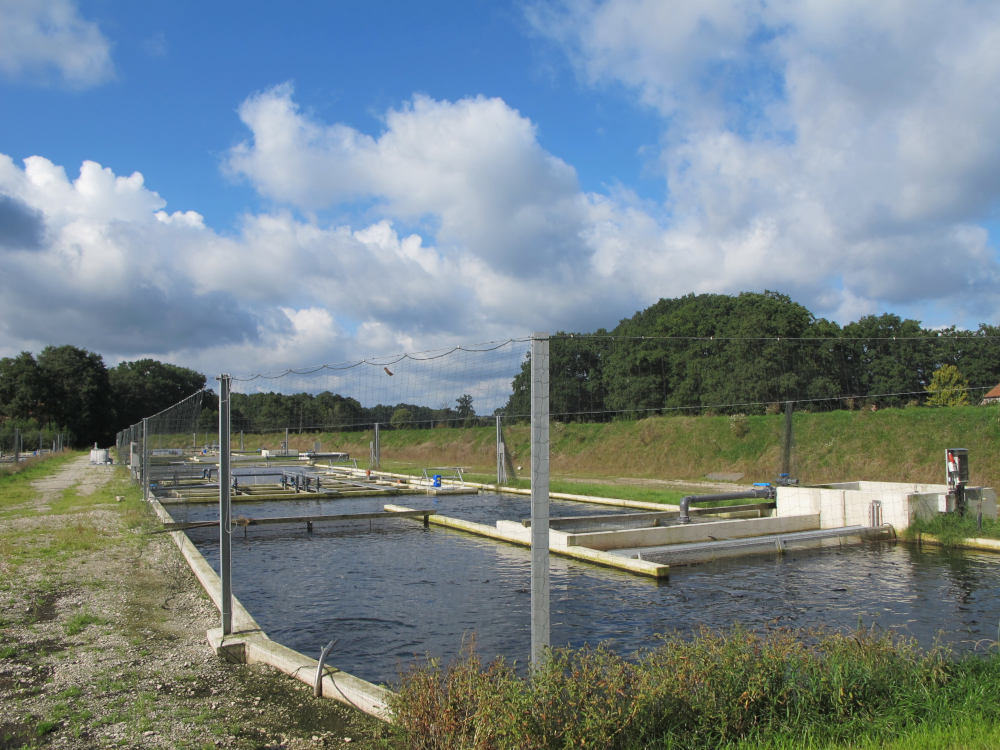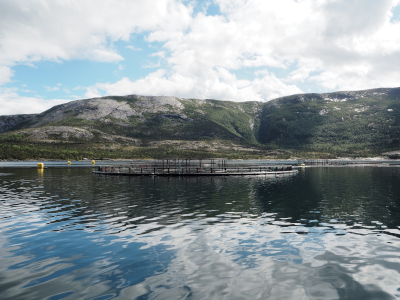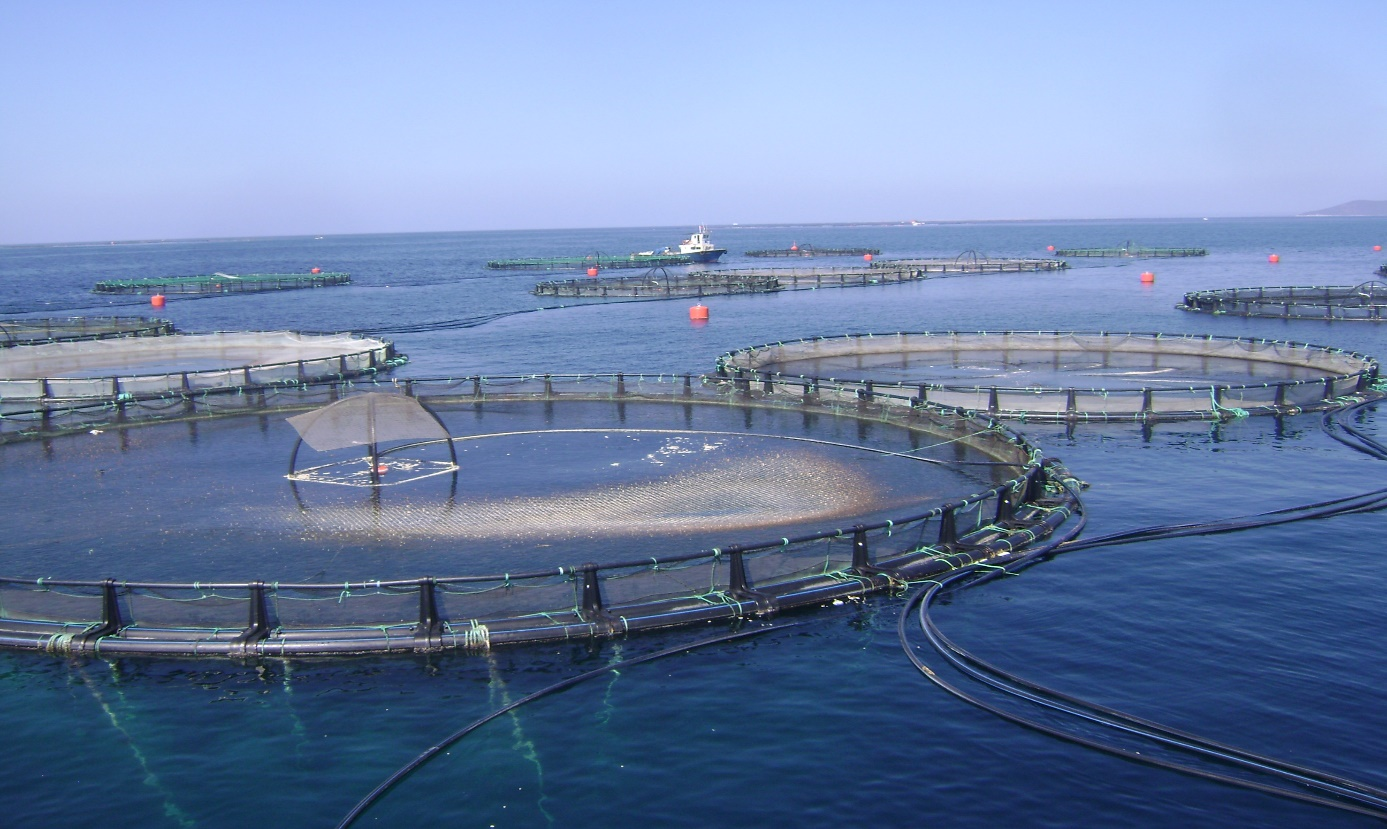|
Having trouble viewing this email? View it in your browser
|
|
August, 2019
|
|
Dear friends of agri benchmark Fish,
|

|
this is Lina-Marie, brand new member of the agri benchmark Fish team. Having joined the team just last month, I am very much looking forward to upcoming fruitful discussions, interesting events and fascinating insights into seafood production!
|
|
| The last months contained a great deal of the latter and kept the agri benchmark Fish team quite busy: there were not only research results to be published, typical salmon farms in Norway to be visited, events to further spread and deepen expertise on the typical farm approach to be planned and hosted, but also a new pilot research project to be started.
|
We enjoyed this exciting time and are happy to share our experiences with you in this newsletter!
Enjoy your read and many greetings from Bremerhaven!
|
Lina-Marie Huber
On behalf of the agri benchmark Fish Team
|
New DCF pilot project “Typical farms in the German aquaculture sector”
|
| While the global trend of remarkable growth of aquaculture production is continuing, potentials of the German aquaculture remain untapped resulting in stagnation. Furthermore, little reliable information is available about the small but complex economic sector. By this means, calculating impacts of political measures on this sector remains as difficult as developing solutions and recommendations on its economic development. To address this gap a more detailed data set is needed than the one standardized questionnaires can provide.
|

|
| German trout farm (©Tobias Lasner - TI)
|
| As the typical farm approach represents a promising alternative tool to burdensome classic surveys its application to the German aquaculture seems to be a useful procedure to gain insights into the dynamics of German fish farming. And moreover, to contribute to considerations on the extent to which classical questionnaires can ensure the data quality needed to develop adequate political measures or if the used methodology has to be reformed.
|
| For this purpose a new pilot project within the EU Data Collection Framework (DCF) has been launched with the primary objective to establish a network of model farms of the German Aquaculture industry to monitor and benchmark their cost structures and profitability. The study focuses on carp and trout farms (the main species of the German aquaculture sector) in the federal states of Baden-Wurttemberg, Bavaria, Brandenburg, Lower-Saxony, North Rhine-Westphalia and Saxony where 80% of the total production takes place.
|
Latest Publications of the agri benchmark Fish
|
| Viability of cork-enriched feed in trout farming – An agri benchmark Fish study on innovative aquaculture techniques
|
| The study Viability of cork-enriched feed in trout farming analyses the potential economic benefits of cork-enriched feed for rainbow trout grow-out systems. For this purpose the implementation of the innovative feed was projected for selected typical trout farms to test its economic feasibility and its impact towards the cost effectiveness of the trout farms under diverse scenarios.
|
|
The key feature of cork-enriched feed namely to result in floating firm faeces allows an easy and fast faeces removal which facilitates the waste management of the farm and improves the water quality.
|
|
During the simulation it became apparent that the cork-enriched feed is a highly viable alternative to conventional feed if an increase in production can be achieved relatively fast. The use of cork-enriched feed is not profitable for smaller operations but for large farms, using cost intensive filtration techniques.
|
Free for download here:
Viability of cork-enriched feed in trout farming - An agri benchmark Fish study on innovative
aquaculture techniques
(G. Behrens, 2019)
|
Typical salmon production in Norway
|
| As part of the EU H2020 research projects CERES and GAIN we collected data of a typical Atlantic salmon net cage production system for the main producing region in Norway and had the chance to visit this highly professionalized sector just recently. With salmon representing the most important aquaculture finfish species produced in Europe and Norway as the most important conventional producer worldwide, this model farm opens interesting opportunities for research questions related to European aquaculture production.
|

|
| Atlantic salmon net cage farm in Nordland, Norway(©C. Kreiss - TI)
|
| Within the EU-project CERES we will compare climate change effects between conventional production in Norway and organic salmon production in Ireland. Our most recently started EU project GAIN focuses on the ecological intensification of aquaculture in Europe and thereby on cost-benefit analyses of precision aquaculture, innovative feed formulations and co-products from the re-use of aquaculture secondary materials.
|
Did you know?
|
| In this section you find short information in regular intervals on particularities of production, sector, policy or trade in agri benchmark member countries.
|

|
One of the biggest players is one of the youngest: Turkey’s sea bass and sea bream sector
|
|
| The first sea bass and sea bream hatcheries came up in the middle of the 1980s, shortly after commercial rainbow trout farming has marked the success start of Turkish aquaculture in the mid-1970s. An aquaculture friendly policy and diverse initiatives from the business sector led to rapid growth in production and sales volume, beginning in the early 2000s and continuing on today.
|
| » Read more
|
Having trouble viewing this email? View it in your browser
|